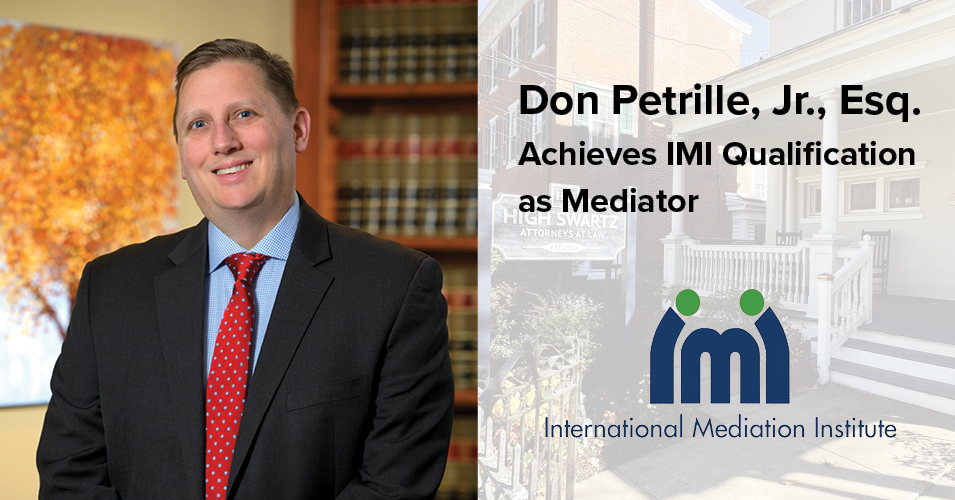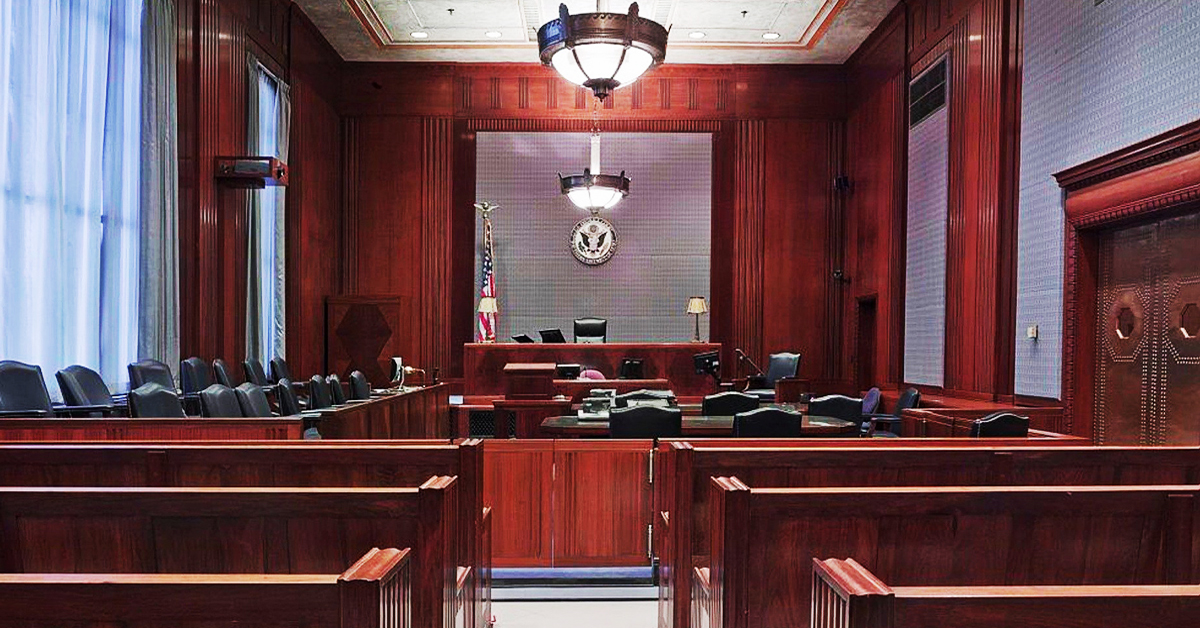The business world faces challenges, with legal issues just one. And for small to mid-sized businesses (SMBs), one of the gravest threats is a lawsuit. Some 12 million contract lawsuits are filed yearly against small businesses. You must have some notion of how to avoid lawsuits.
Large corporations might have the capital to weather corporate law and business litigation. But for SMBs, it could present a significant concern if it does not spell the end of your business. Fortunately, there are proactive steps you can take as a small business owner to protect your venture from commercial litigation.
One of the best first steps is arming yourself with an experienced business lawyer near you. They can work with you to put the necessary protections in place to reduce your chances of a lawsuit.
Avoiding Business Law Compliance Concerns
As a small to mid-sized business owner, you might wonder, "Why is compliance so vital?"
First, adherence to business regulations isn't just a matter of legality; it's about credibility. Compliance builds trust among clients, customers, and partners to show that your business operates with integrity and respect for the rules.
Second, staying compliant prevents financial penalties, disruptions, and legal challenges.
Two of the more common business regulations involve zoning and permits.
Zoning Ordinances
A zoning ordinance regulates how you can use a property in a specific location, typically involving areas within counties and cities. In these areas, local governments may regulate and limit the activities in the jurisdiction.
For instance, nearly 60% of Pennsylvania townships and boroughs have zoning ordinances dictating permitted use. So, your small business in Montgomery or Bucks County likely has different requirements than another across the state.
SMBs must be diligent in ensuring their operations adhere to these regulations. Otherwise, you can face legal consequences, including:
- Criminal penalties, including fines or jail time.
- Civil penalties that prevent the zoning violation from continuing.
- Withholding of permits
Licenses and Permits
In addition to zoning ordinances, your business may require various licenses and permits. Failing to secure the right ones can lead to hefty penalties or closures. So, you must consult with local authorities or a business attorney to ensure you're up to date.
How to Avoid Lawsuits from Employees
Employees are the core of every business. The relationships you build with them can make or break your enterprise, especially for SMBs.
Fostering a positive work environment is crucial to productivity and morale. Equally important, it's a critical shield to avoid lawsuits.
The dangers of neglecting employee relations are vast and sometimes devastating. Three of the most common employee lawsuits include discrimination, wrongful termination, and wage violations.
Understanding and safeguarding your human resources is more than just good business practice. It's a must to navigate the complex legal landscape of today.
Here are some other steps you can take to avoid having to hire a commercial litigation attorney.
Training and Educating Employees
Informed employees are your best assets in lawsuit prevention. Regularly train them on company policies, harassment prevention, safety protocols, and more. This not only empowers them but also safeguards your business.
Open Communication Channels
Foster a culture where employees feel free to voice their concerns. Open communication can nip potential issues before they escalate into more significant problems or lawsuits.
Workers' Compensation
One of the essential concerns relating to employees is workers' compensation. It's a requirement for employers in Pennsylvania, regardless of size. Otherwise, you risk civil and criminal penalties.
In addition, you may also be responsible for reimbursing the Uninsured Employers Guaranty Fund, including costs, interest, penalties, and other fees. Your employees can also file a lawsuit in state or federal court against you if you are uninsured.
Employment Contracts and Noncompetes
Clear employment contracts are essential. They lay out the expectations, roles, and potential severance conditions.
Restrictive covenants can be helpful if you're concerned about employees leaving and joining competitors. However, these agreements must be reasonable regarding length and scope to be enforceable.
Legal disputes can arise from employers against employees violating the contract. Conversely, employees can sue your business for unfair requirements within a noncompete agreement.
Noncompete litigation is typically fast-paced and expensive. You must act quickly if you suspect an employee or former employee is violating a noncompete agreement. Confirming sufficient factual support is critical before starting the litigation process.
How to Avoid Lawsuits During Business Formation
It's essential to separate personal and business assets.
Imagine this: Your business faces a lawsuit, and your assets, like real estate or your car, are at risk. Creating a legal distinction between your business and personal assets is crucial. And you can do that when you start a small business.
Choosing your business structure is your first critical concern as a small business owner. The form you select impacts everything from taxes and business control to operating costs and liabilities.
For example, forming an LLC or a corporation removes personal liabilities. Hiring a business lawyer is a wise investment during business formation. It helps ensure you avoid legal pitfalls down the road.
How to Avoid Lawsuits Involving Your Personal Life
Unfortunately, the line between our personal and professional lives often blurs. And that's especially true for small to mid-sized business owners.
Of all personal matters, divorce is likely the most severe threat to your business, especially with high assets.
Marital property typically includes assets acquired during the marriage. Moreover, personal premarital assets can convert to marital property over time. So, if you formed your business during the marriage, it's marital property.
That applies even if your spouse doesn't own any part of the business. Consequently, a spouse can claim a share of the company's value in a divorce.
Consider drafting a marital agreement that clearly defines business ownership. It can go a long way to preventing your business from becoming a point of contention in a divorce. It's also wise to avoid mixing marital funds with business funds.
Good Documentation Can Help Avoid Lawsuits
In a lawsuit, well-maintained records can be your most vigorous defense.
Keep accurate records of all business transactions, employee training, safety measures, and customer interactions. If someone claims you, you have evidence to validate your story.
Regular Legal Audits Help Avoid Lawsuits
Think of legal audits as health check-ups for your business. It's best to get into the habit when you start a business. Consulting with a business lawyer can help you identify and address potential concerns.
Spending money on legal help initially is much cheaper than paying a business litigation lawyer later.
Consider Insurance as a Safeguard Against Lawsuits
Insurance cannot help you avoid a lawsuit, but it can assist you if someone hits you with one. It offers a safety net and a shield against these unforeseen challenges. We already mentioned workers' comp insurance as mandatory. But here are some other insurance types worth considering to protect your business:
- General Liability Insurance: It covers legal fees and damages for lawsuits like injury or property damage.
- Professional Liability Insurance: This insurance protects against legal claims arising from professional errors, negligence, or contract breaches. For instance, if a consultant offers advice that leads to a client's financial loss, this insurance can cover the legal fallout.
- Product Liability Insurance: If you sell a product, you run the risk of that product causing harm. In addition, the product may not meet its promised standards. This insurance protects against lawsuits from product-related issues, ensuring that one defective batch doesn't spell doom for your venture.
- Cyber Liability Insurance: In an age where businesses increasingly operate online, cyber threats are real and potent. This insurance protects companies against lawsuits from data breaches or other cyber incidents. For businesses that handle sensitive customer data, this is becoming increasingly non-negotiable.
Our Business Litigation Attorneys Can Help
Regardless of how carefully you try to avoid a lawsuit, it's almost inevitable. Reports from various sources indicate that up to 53% of small businesses face a suit annually. And 90% of all companies experience a lawsuit at some point in their lifespan.
If that happens to your business, call our Doylestown or Norristown law offices and talk with our experienced business litigation attorneys. They'll help you address any legal action and get the desired results.











